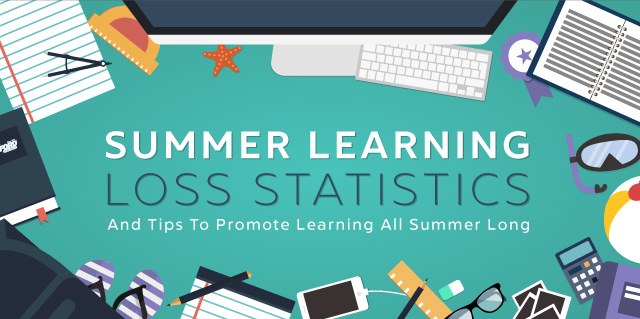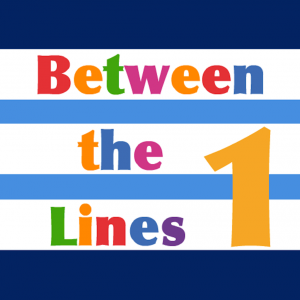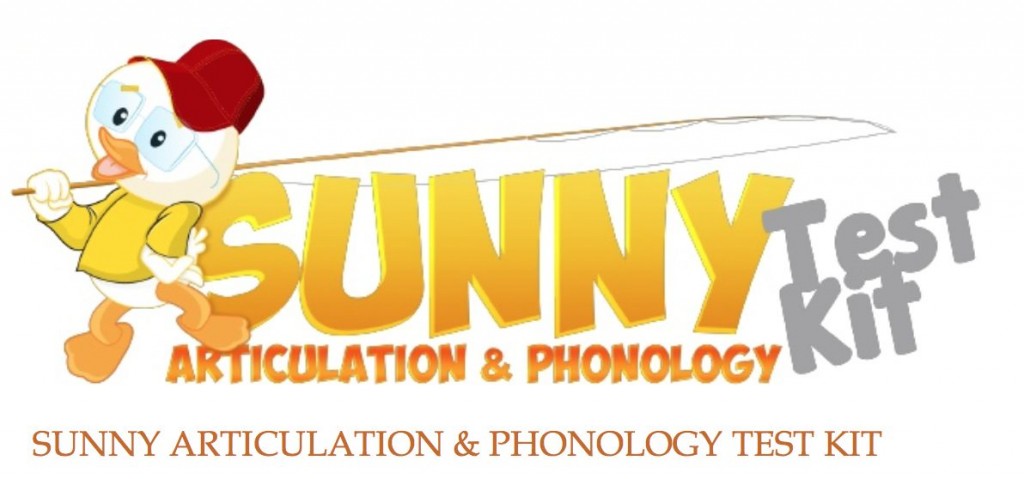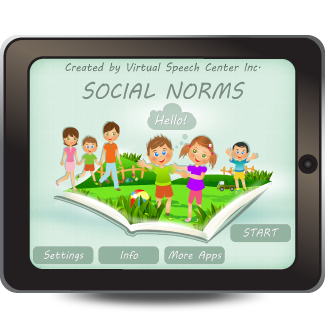 Summer is in full swing and for many SLPs that means a welcome break from work. However, for me, it’s business as usual, since my program is year around, and we have just started our extended school year program.
Summer is in full swing and for many SLPs that means a welcome break from work. However, for me, it’s business as usual, since my program is year around, and we have just started our extended school year program.
Of course, even my program is a bit light on activities during the summer. There are lots of field trips, creative and imaginative play, as well as less focus on academics as compared to during the school year. However, I’m also highly cognizant of summer learning loss, which is the phenomena characterized by the loss of academic skills and knowledge over the course of summer holidays.

According to Cooper et al, 1996, while generally, typical students lose about one month of learning, there is actually a significant degree of variability of loss based on SES. According to Cooper’s study, low-income students lose approximately two months of achievement. Furthermore, ethnic minorities, twice-exceptional students (2xE), as well as students with language disorders tend to be disproportionately affected (Graham et al, 2011; Kim & Guryan, 2010; Kim, 2004). Finally, it is important to note that according to research, summer loss is particularly prominent in the area of literacy (Graham et al, 2011).
So this summer I have been busy screening the phonological awareness abilities (PA) of an influx of new students (our program enrolls quite a few students during the ESY), as well as rescreening PA abilities of students already on my caseload, who have been receiving services in this area for the past few months.
Why do I intensively focus on phonological awareness (PA)? Because PA is a precursor to emergent reading. It helps children to manipulate sounds in words (see Age of Aquisition of PA Skills). Children need to attain PA mastery (along with a host of a few literacy-related skills) in order to become good readers.
When children exhibit poor PA skills for their age it is a red flag for reading disabilities. Thus it is very important to assess the child’s PA abilities in order to determine their proficiency in this area.
While there are a number of comprehensive tests available in this area, for the purposes of my screening I prefer to use the ProPA app by Smarty Ears.

The Profile of Phonological Awareness (Pro-PA) is an informal phonological awareness screening. According to the developers on average it takes approximately 10 to 20 minutes to administer based on the child’s age and skill levels. In my particular setting (outpatient school based in a psychiatric hospital) it takes approximately 30 minutes to administer to students on the individual basis. It is by no means a comprehensive tool such as the CTOPP-2 or the PAT-2, as there are not enough trials, complexity or PA categories to qualify for a full-blown informal assessment. However, it is a highly useful measure for a quick determination of the students’ strengths and weaknesses with respect to their phonological awareness abilities. Given its current retail price of $29.99 on iTunes, it is a relatively affordable phonological awareness screening option, as the app allows its users to store data, and generates a two-page report at the completion of the screening.
The Pro-PA assesses six different skill areas:
- Rhyming
- Identification
- Production
- Blending
- Syllables
- Sounds
- Sound Isolation
- Initial
- Final
- Medial
- Segmentation
- Words in sentences
- Syllables in words
- Sounds in words
- Words with consonant clusters
- Deletion
- Syllables
- Sounds
- Words with consonant clusters
- Substitution
- Sounds in initial position of words
- Sounds in final position of words
 After the completion of the screening, the app generates a two-page report which describes the students’ abilities as:
After the completion of the screening, the app generates a two-page report which describes the students’ abilities as:
- Achieved (80%+ accuracy)
- Not achieved (0-50% accuracy)
- Emerging (~50-79% accuracy)
The above is perfect for quickly tracking progress or for generating phonological awareness goals to target the students’ phonological awareness weaknesses. While the report can certainly be provided as an attachment to parents and teachers, I usually tend to summarize its findings in my own reports for the purpose of brevity. Below is one example of what that looks like:
 The Profile of Phonological Awareness (Pro-PA), an informal phonological awareness screening was administered to “Justine” in May 2017 to further determine the extent of her phonological awareness strengths and weaknesses.
The Profile of Phonological Awareness (Pro-PA), an informal phonological awareness screening was administered to “Justine” in May 2017 to further determine the extent of her phonological awareness strengths and weaknesses.
On the Pro-PA, “Justine” evidenced strengths (80-100% accuracy) in the areas of rhyme identification, initial and final sound isolation in words, syllable segmentation, as well as substitution of sounds in initial position in words.
She also evidenced emerging abilities (~60-66% accuracy) in the areas of syllable and sound blending in words, as well as sound segmentation in CVC words,
However, Pro-PA assessment also revealed weaknesses (inability to perform) in the areas of: rhyme production, isolation of medial sounds in words, segmentation of words, segmentation of sounds in words with consonant blends,deletion of first sounds, consonant clusters, as well as substitution of sounds in final position in words. Continuation of therapeutic intervention is recommended in order to improve “Justine’s” abilities in these phonological awareness areas.
Now you know how I quickly screen and rescreen my students’ phonological awareness abilities, I’d love to hear from you! What screening instruments are you using (free or paid) to assess your students’ phonological awareness abilities? Do you feel that they are more or less comprehensive/convenient than ProPA?
References:
- Cooper, H., Nye, B., Charlton, K., Lindsay, J., & Greathouse, S. (1996). “The effects of summer vacation on achievement test scores: A narrative and meta analytic review.” Review of Educational Research, 66, 227–268.
- Graham, A., McNamara, J. K., & Van Lankveld, J. (2011). Closing the summer learning gap for vulnerable learners: An exploratory study of a summer literacy programme for kindergarten children at-risk for reading difficulties. Early Child Development and Care, 181, 575–585.
- Kim, J. S. (2004). Summer reading and the ethnic achievement gap. Journal of Education for Students Placed
at Risk, 9, 169–188. - Kim, J.,S. & Guryan, J. (2010). The efficacy of a voluntary summer book reading intervention for low-income Latino children from language minority families. Journal of
Educational Psychology, 102(1), 20-31
 Those of you who follow my blog know that I absolutely adore the “Between the Lines” app series by Hamaguchi apps, which focuses on targeting aspects of social language including tone of voice and non-verbal body language, perspective taking as well as idiom interpretation. I have already reviewed
Those of you who follow my blog know that I absolutely adore the “Between the Lines” app series by Hamaguchi apps, which focuses on targeting aspects of social language including tone of voice and non-verbal body language, perspective taking as well as idiom interpretation. I have already reviewed  In February 2013 I did a review of the
In February 2013 I did a review of the  Today I am reviewing “Social Norms” a brand new app developed by the Virtual Speech Center to improve social skills in children with autism spectrum disorders.
Today I am reviewing “Social Norms” a brand new app developed by the Virtual Speech Center to improve social skills in children with autism spectrum disorders.  I enjoyed
I enjoyed  Today I am reviewing an awesome social-pragmatic language app by
Today I am reviewing an awesome social-pragmatic language app by  Today I am reviewing
Today I am reviewing 
